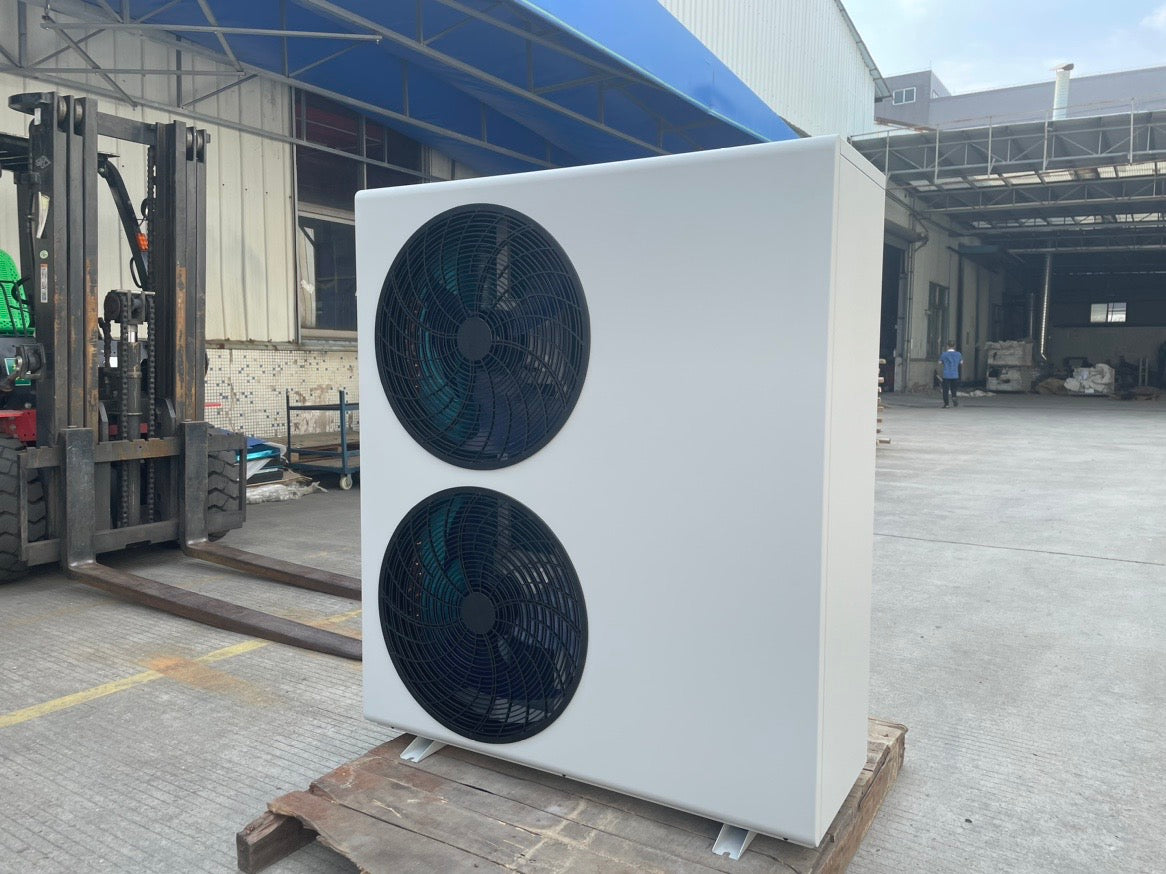A heat pump is a device that moves heat from one place to another, usually from the outside air or ground to a building or home for heating, or from the inside of a building or home to the outside air or ground for cooling. It uses a cooling cycle to move heat rather than producing it directly and can operate in both heating and cooling modes.
There are several types of heat pump, including air source heat pumps, ground source heat pumps and water source heat pumps. ZEALUX INVERBOOST ashp heating leads the European heat pump market and dominates it.
Versatility
Heat pumps can heat and cool homes, making them a versatile option that can be used all year round.ZEALUX INVERBOOST In heating mode, the heat pump absorbs heat from the outdoor air or ground and transfers it indoors to heat a building or home. In cooling mode, the heat pump absorbs heat from inside and transfers it to the outdoor air or ground to cool the building or home.
The ZEALUX heat pump offers several advantages over other heating systems, including
Versatility
Stable temperatures
Zoning capability
Safety
Environmentally friendly
Durable
Energy efficiency
Heat pumps are renowned for their high energy efficiency. They can provide the same amount of heating or cooling as conventional heating and cooling systems, but they use less energy to do so. This is because heat pumps transfer heat from one place to another, rather than producing heat or cool air directly, which requires more energy.
The energy efficiency of a heat pump is measured by its coefficient of performance (COP), which compares the amount of energy used by the heat pump with the amount of heating or cooling it provides. For example, a heat pump with a COP of 3.5 provides 3.5 units of heating or cooling for every unit of energy consumed.ZEALUX INXERBOOST heat pumps are up to 300% more efficient than conventional heating systems such as resistance heating or fuel-burning furnaces and up to 60% more efficient than conventional air conditioning systems, making them an efficient and cost-effective way to provide heating and cooling for a home or building choice.
Environmentally friendly
Heat pumps are considered environmentally friendly heating systems because they produce fewer greenhouse gas emissions and use less energy to heat or cool a space than conventional heating and cooling systems. The lower energy consumption reduces greenhouse gas emissions as well as the carbon footprint, so heat pumps are said to be environmentally friendly. The following ZEALUX Heat Pump Manufacturer are environmentally friendly:
High energy efficiency and low emission pollution
More friendly to the environment due to the use of renewable energy (air)
No emissions, low impact on air quality and environment
Reduced reliance on non-renewable resources
Consistent temperatures
The basic mechanism of a heat pump is based on the refrigeration cycle, which involves compressing and expanding the refrigerant gas to absorb and release heat. In contrast, a heat pump system is designed to maintain a constant room temperature by continuously monitoring the temperature and adjusting the heating or cooling output as required. It can do this by using a thermostat or other control system to sense the room temperature and send a signal to the heat pump to adjust its operation.
In addition to energy efficiency, heat pumps can provide comfortable and consistent indoor temperatures throughout the home, which can help to reduce energy bills and improve indoor air quality.
Durability
Heat pumps are often built to last, with many models offering warranties of up to 10 years or more. The durability of a typical heat pump is evident in the following areas:
Construction and materials:
The quality of materials and construction of a heat pump system can affect its durability. Heat pumps using high quality components and materials, such as stainless steel or copper tubing, are likely to last longer than heat pumps using lower quality components.
Maintenance:
Regular maintenance is essential to ensure the longevity of your heat pump. Proper maintenance, including cleaning coils and changing filters, can help prevent breakdowns and extend the life of your heat pump.
Environment:
The climate and where the heat pump is installed can also affect its durability. Extreme temperatures or harsh weather conditions, such as high winds, heavy rain or salty air, can cause long-term wear and tear on a heat pump.
Usage:
The amount of use a heat pump receives also affects its durability. A heat pump that is used regularly or over a long period of time may experience more wear and tear than one that is used infrequently.
Safety
Heat pumps are considered to be a safe heating and cooling option and can be explored in the following ways:
Non-combustion:
Heat pumps do not use combustion to generate heat, which eliminates carbon monoxide poisoning and other combustion-related hazards.
No flames or hot surfaces:
Unlike some other heating systems, heat pumps do not have any open flames or hot surfaces that could cause burns or fires.
Correct installation:
The correct installation of a heat pump is essential to ensure its safe operation. A professional installer can ensure that the system is installed correctly and that all electrical and refrigerant connections are secure.
Regular maintenance:
Regular maintenance of the heat pump is essential to ensure its safe operation. This includes cleaning the coils, changing the filters and checking the system for any signs of wear or damage.
Carbon monoxide detectors:
Although heat pumps do not produce carbon monoxide, it is still a good idea to install a carbon monoxide detector in your home to detect any other potential sources of this dangerous gas.
Overall, heat pumps can provide many benefits to a home, including energy efficiency, comfort, improved indoor air quality, versatility, durability and safety.

 Heat Pump Manufacturer
Heat Pump Manufacturer air source heat pumps
air source heat pumps

